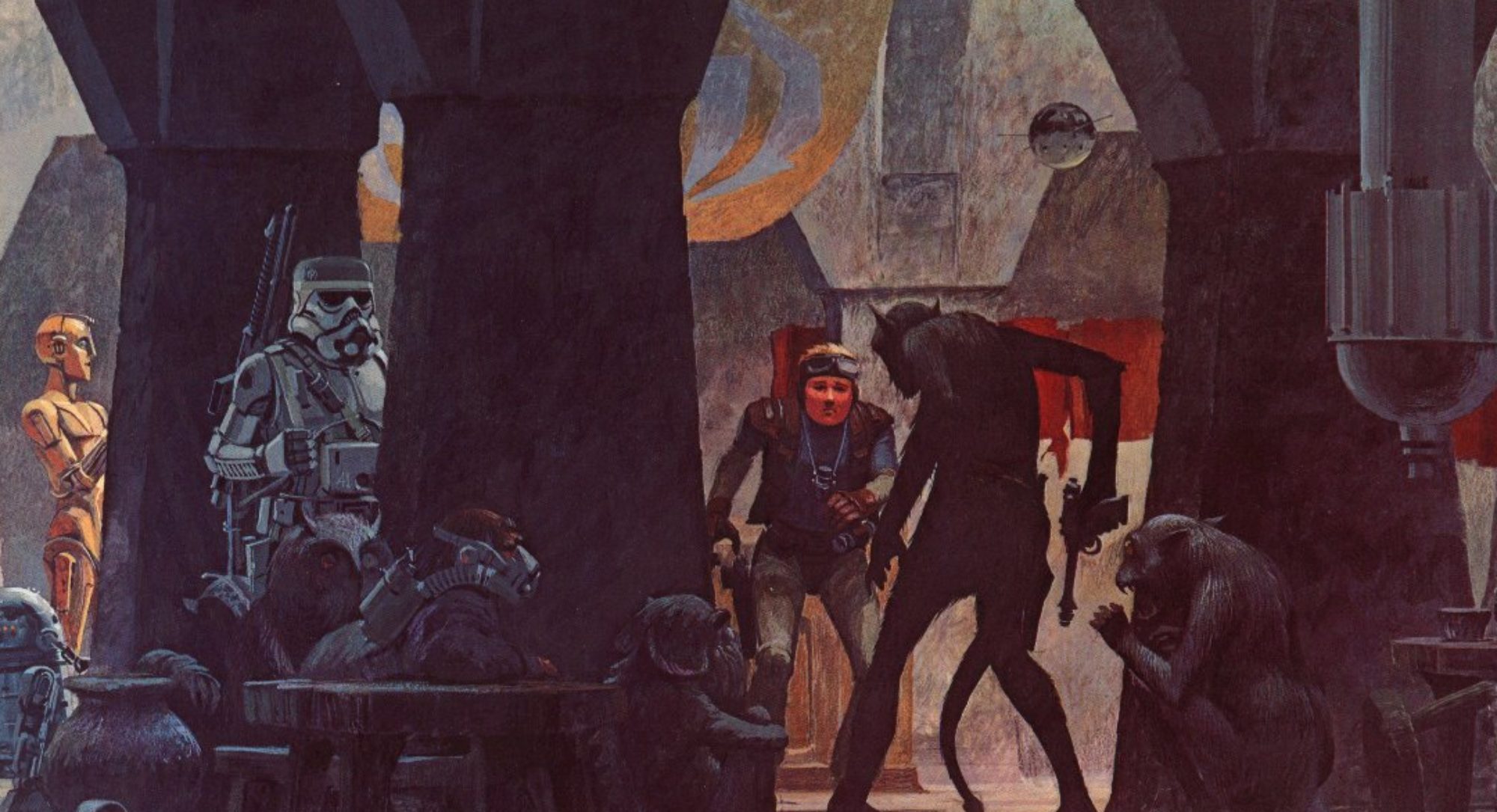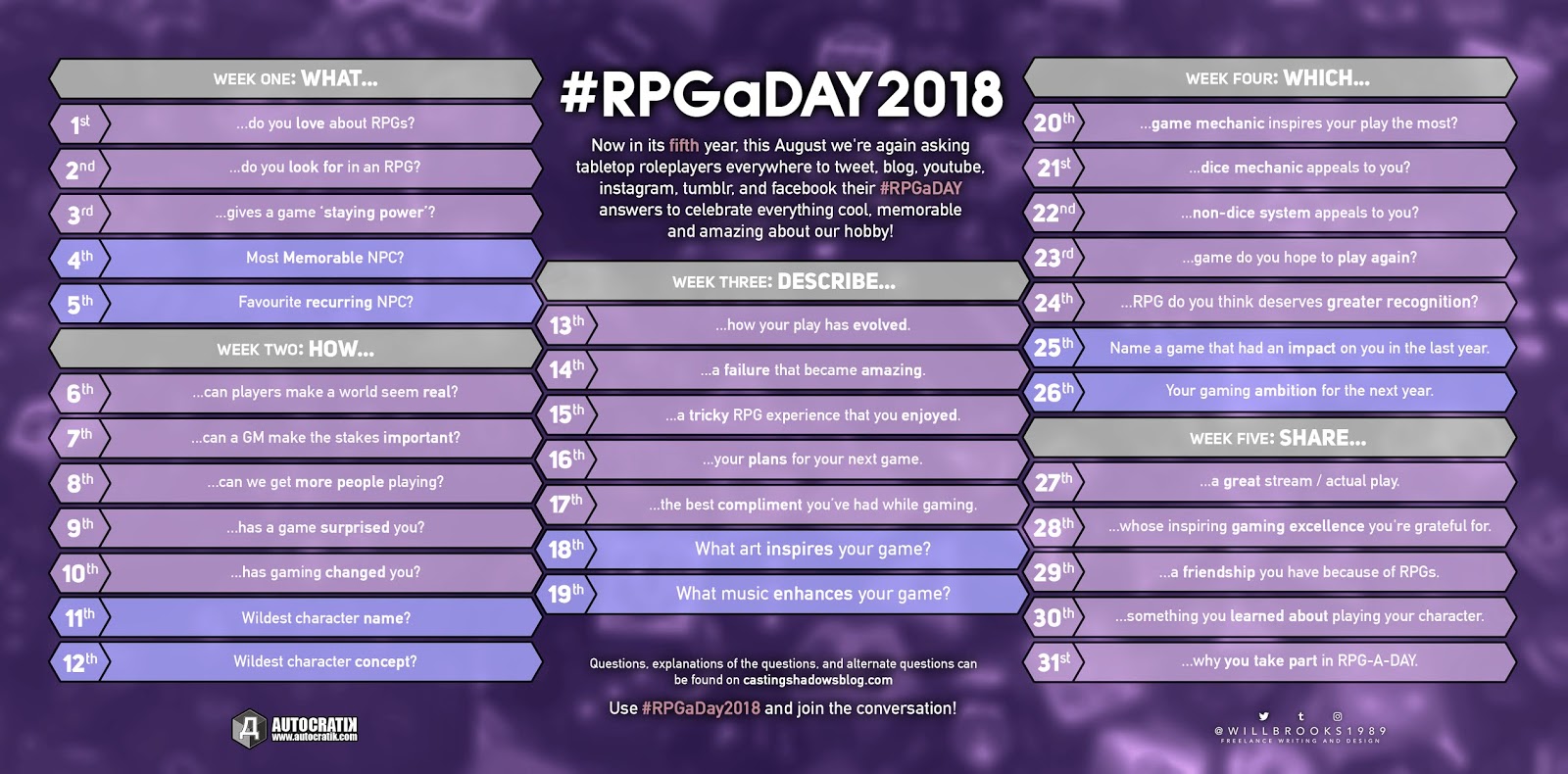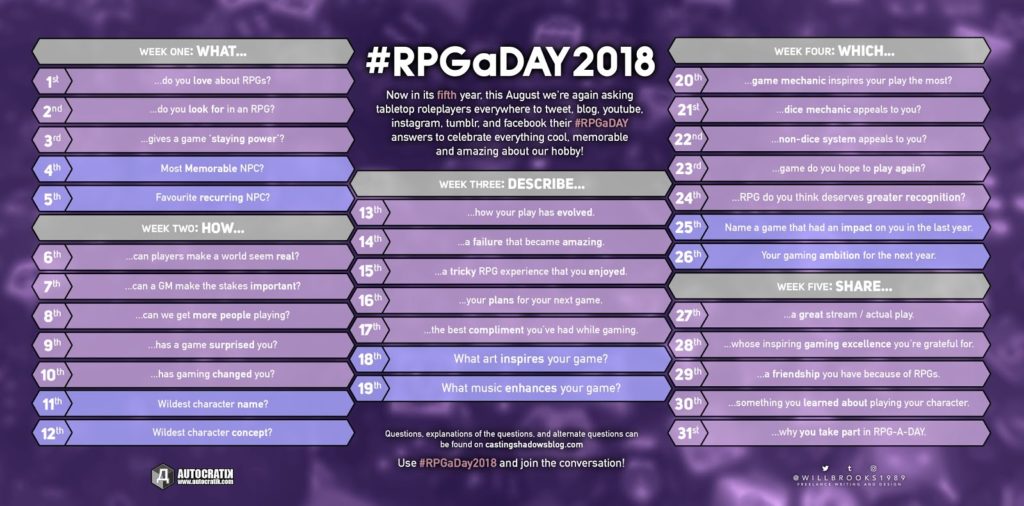Today’s question: How has a game surprised you?
I’ll admit to having been completely surprised by how much I really dig D&D 5th Edition. After 14 years of immersion (as a player, a DM and a designer & publisher) in the crunchy complexity of 3rd Edition (and it’s d20 derivatives, like Pathfinder), and after finding the dramatic redesign of 4th Edition completely not to my liking, I had pretty much no interest in 5th Edition.
Then I looked at the “Basic” PDFs that Wizards of the Coast made available, and immediately went out and bought the three core books. I was amazed at how streamlined it was, and how many influences it bore from more modern, narrative games, yet still managed to be Dungeons & Dragons. It’s a cliché, but it truly felt like a distillation of everything I loved from 2nd and 3rd editions, and awakened a nostalgic love that went back to my Basic/Expert set days. (And that might be the most surprising thing of all.)
My only regret is that I haven’t had the time (or the playing group) to actually run a game yet.



